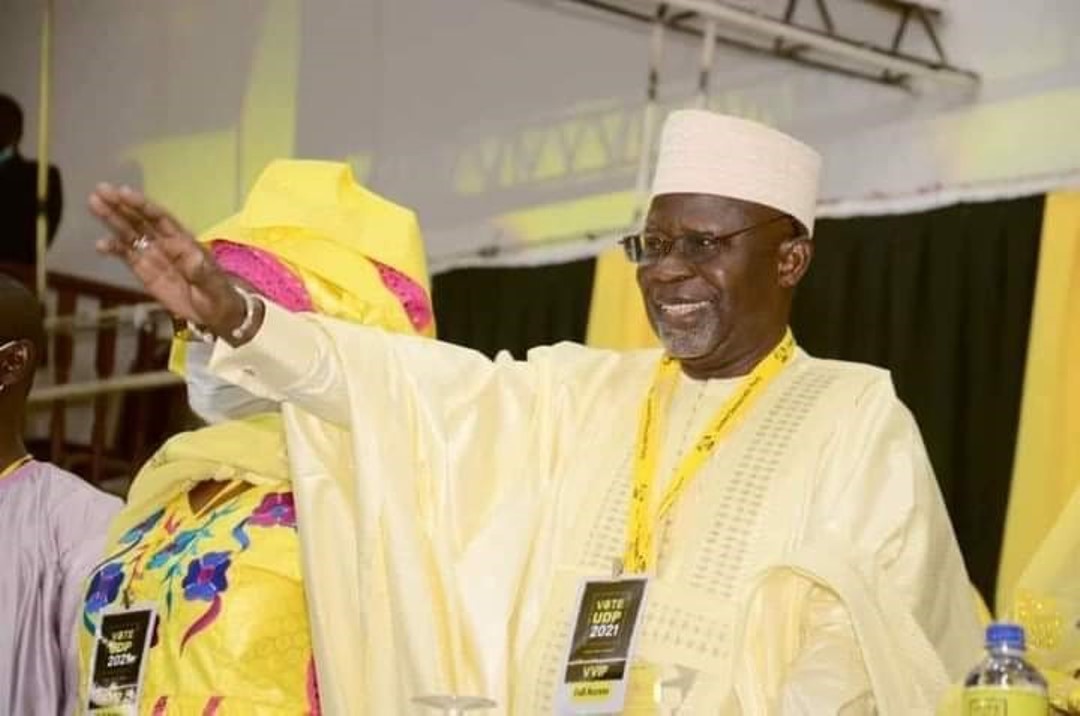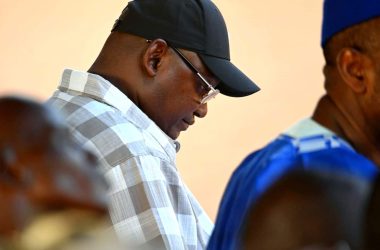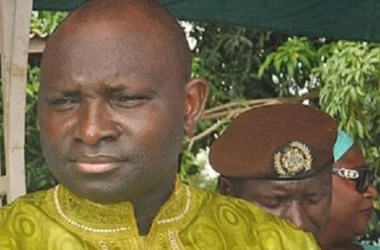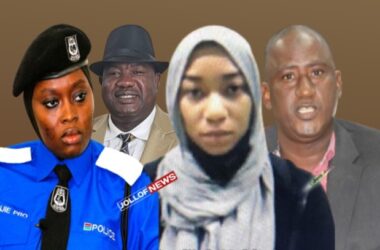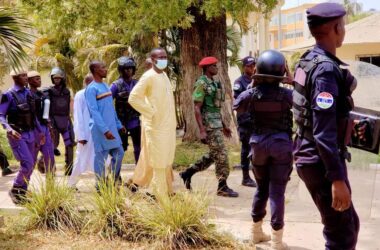 (JollofNews) – Exiled Gambian journalists in collaboration with the Federation of African Journalists (FAJ) have filed a legal claim before the ECOWAS Court of Justice, to challenge the persistent culture of persecution, violence and injustice towards journalists in The Gambia, a press release issued by the Media Legal Defence Initiative (MLDI) on December 8th, 2015, stated.
(JollofNews) – Exiled Gambian journalists in collaboration with the Federation of African Journalists (FAJ) have filed a legal claim before the ECOWAS Court of Justice, to challenge the persistent culture of persecution, violence and injustice towards journalists in The Gambia, a press release issued by the Media Legal Defence Initiative (MLDI) on December 8th, 2015, stated.
In the said law suit, the exiled journalists argued that their right to freedom of expression has been violated through the use of criminal laws that prohibit criticism to be made of the Gambian government.
Supported by the Media Legal Defence Initiative, this case marks the first time that The Gambian criminal laws have been challenged before an international court.
According to survey reports, over 110 journalists have fled into exile from 1994 to date due to the dangerous business of journalism in The Gambia and the climate of fear, violation of rights , among others.
The press release reads;
The Federation of African Journalists and three exiled Gambian reporters have filed a legal claim before the Court of Justice of the Economic Community of West African States to challenge the pervasive culture of persecution, violence, and injustice towards journalists in The Gambia.
They argue that their right to freedom of expression has been violated, including through the use of criminal laws that prohibit criticism to be made of the government. These laws, which have their roots in colonial times when they were used to suppress dissent, are now specifically used to target journalists and human rights defenders. The applicants have asked the Court to make a declaration that their very existence violates the right to freedom of expression. In addition, some of the applicants argue that they suffered torture as a consequence of them exercising their right to freedom of expression.
This marks the first time that The Gambia’s criminal laws have been challenged before an international court. The case has been brought with the support of the Media Legal Defence Initiative.
Since President Yahya Jammeh seized control in 1994, journalists in The Gambia have suffered arbitrary detention, criminal prosecution, and even torture at the hands of public officials.
Three of the applicants are Gambian journalists who have all fled the country. They have been charged under the country’s false news, criminal libel and sedition laws in relation to publications critical of President Jammeh and his regime. Whilst in custody, one of the applicants alleges that he was tortured by government authorities on multiple occasions, including to extract information from the journalist.
The experience of the three applicants is not unique; over 110 Gambian journalists have fled the country since 1994 for fear of similar prosecutions whose roots lie in the very existence of a set of criminal laws that are easily abused to suppress dissent. A judgment in the applicants’ favour would set an important precedent because of the potential impact on these laws in The Gambia, as well as similar laws elsewhere in the region.
In recent years, the Court of the Economic Community of West African States – better known by its acronym, ECOWAS – has proved to be an influential forum for human rights issues. Last year, the Court found that the Gambian government had failed to conduct a meaningful investigation into the death of journalist Deyda Hydara. The Federation of African Journalists supported that case also, and Maria Luisa Rogerio, Interim President of FAJ, commented that “FAJ has experienced first-hand the effects President Jammeh’s oppressive media laws have had on journalists in The Gambia. The ECOWAS Court has already criticised the impunity witnessed in the Hydara case, and we hope that that they will continue in this vein by handing down a strong precedent criticising the criminal laws that are currently being used to persecute, intimidate and harass journalists in The Gambia and compel the country to maintain an environment where journalists are able to perform their duties without impediment.”
The Nigerian human rights lawyer Noah Ajare, who acts for the Applicants in the present case, said: “It is our hope that this application can benefit from the precedent of the Hydara case, since the ECOWAS Court is continuing to expand its work on human rights abuses in the West African region and has recognised the important role played by journalists in a democracy. The ECOWAS Court is carrying out a vitally important role in holding West African states to account for their human rights abuses. Thus the applicants are convinced that their right will be protected and preserved by the Court, despite the fact that most of them are not guaranteed justice before their national court.”
MLDI’s support of this case follows its involvement in two other precedent-setting African cases regarding journalists’ rights and freedom of expression. In 2014, Legal Director Nani Jansen co-represented a journalist from Burkina Faso before the African Court on Human and Peoples’ Rights. The Court ruled that imprisonment for defamation violates the right to freedom of expression. In addition, MLDI assisted the Burundi Journalists’ Union in bringing a case to the East African Court of Justice earlier this year. In itsfirst ever judgment on free speech, that Court ruled that restrictions on the press imposed through Burundi’s 2013 Press Law violated the right to press freedom and the right to freedom of expression. The current claim at the ECOWAS Court builds on the precedent set by these two cases and invites the Court to align itself with the courts’ reasoning that criminal laws cannot unnecessarily restrict the right to freedom of expression.
Nani Jansen, Legal Director at MLDI, said: “The Gambia’s maintaining of these criminal laws constitutes a wide-ranging violation of the rights of journalists, media outlets and the recipients of independent news in the country. A favourable judgment from the ECOWAS Court would set an important precedent for journalists and independent media in The Gambia and would oblige the government to meet its responsibilities under international human rights law. It would also have a positive impact on other ECOWAS nations, where similarly restrictive laws are being used to prosecute journalists.”
British barrister Can Yeginsu, part of the team presenting the case at the ECOWAS Court, said: “This is a case of great public importance: it presents the ECOWAS Court with an opportunity to uphold the importance of the right to communicate opinions and ideas without fear of government retaliation or censorship. That right is, of course, of particular importance for the media which plays a special role as the bearer of the general right to freedom of expression for all. Society as a whole will suffer if journalists are persecuted by public officials with apparent impunity.”
